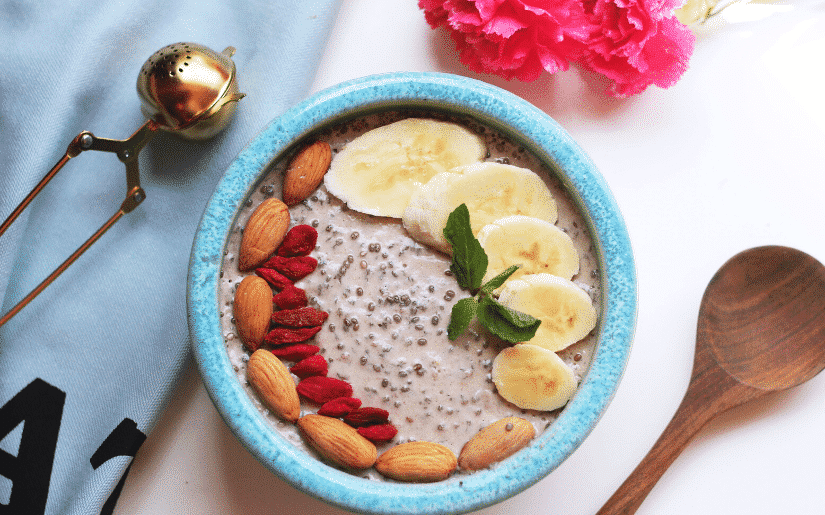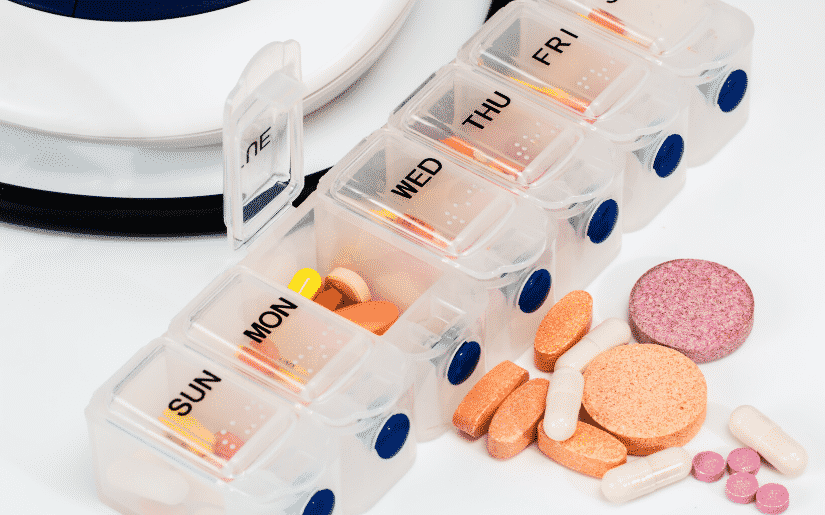These days, we’re all doing our best to eat a healthy diet, get enough exercise, and take the right dietary supplements to fill in the nutritional gaps. The thing to keep in mind is, you can take in all the vitamins and minerals in the world, but they won’t do you any good if you’re not absorbing them.
Pairing certain vitamin and mineral supplements with certain foods, beverages, and other nutrients allows the body to absorb them more effectively. For example, vitamin C increases the bioavailability of almost all other vitamins, so taking your vitamin supplements with orange juice is an easy way to improve their absorption.
If you’ve invested in a high-quality, personalized vitamin regimen, the last thing you want to do is throw your money away by not taking them the right way. Let’s take a look at 12 smart strategies you can use every day to help your body absorb vitamins better.
1. Learn the Difference Between Fat-Soluble Vitamins and Water-Soluble Vitamins.
Learning the difference between fat-soluble vitamins and water-soluble vitamins is important for getting the most out of your vitamin supplements. Vitamin A, vitamin D, Vitamin E, and Vitamin K are all fat-soluble.
Fat-soluble vitamins are stored in the body. They can build up and become toxic if taken in very high doses. On the other hand, unabsorbed water-soluble vitamins are passed in the urine. All B vitamins and vitamin C are water-soluble.
Sometimes, you’ll notice that your urine is bright yellow after you take your multivitamin. That’s because your body is getting rid of the water-soluble vitamins it can’t absorb.
2. How to Help Your Fat-Soluble Vitamins Absorb Better
Taking your fat-soluble vitamins with a meal that includes some dietary fat will help them absorb better. If you’re taking vitamins A, D, E, or K in the morning, include some full-fat dairy, nut butter, or other healthy, high-fat food with your breakfast. If you take them later in the day, avocado and olive oil are both healthy-fats. Studies show this easy strategy can improve your absorption of vitamin D by as much as 32%.

3. Learn Which Vitamin and Mineral Supplements Should Be Taken with a Meal, and Which Ones Shouldn’t
We’ve all heard that we should take our vitamins with a balanced meal to avoid an upset stomach, but did you know it improves vitamin absorption in most cases, too? When you eat a meal, it triggers the digestive processes that allow your body to absorb micronutrients from food, which will also allow your supplements to be absorbed.
Iron is one exception to this rule. Although it can trigger nausea, iron should be taken on an empty stomach for best absorption. To boost absorption even further, take it at the same time you take a vitamin C supplement.
Amino acids, enzymes, and herbal supplements should be taken 30 minutes before you eat or two hours later.
4. Be Cautious of Interactions and Side-Effects When Combined with Medications
If you have a health condition that you take medication for, it’s important to be aware of potential side-effects and interactions. Certain combinations could make your vitamins or your medication less effective, while others may boost their effects.
Combining supplements with medication could put you at risk of overdose and other health problems. For example, calcium inhibits the absorption of a common thyroid medication, so they should always be taken at least a few hours apart.
If you take any prescription or over-the-counter medication, talk to your doctor and pharmacist to ensure you’re not mixing the wrong supplements and medications without realizing it.
5. Learn Which Vitamins and Minerals Should Be Taken Together
The effectiveness of certain vitamins and minerals will be boosted if they’re taken together. For example, you should always take calcium with vitamin D and vitamin K. The two vitamins help your bones absorb the calcium, which is crucial for maintaining strong bones as you age.
As mentioned above, vitamin C improves the absorption of iron (and many other nutrients), but the benefits don’t end there. Vitamin C also counteracts the nausea and constipation some people experience with iron supplements.
6. And, Learn Which Ones to Split
On the other hand, there are also certain combos that should be avoided. For example, calcium inhibits iron absorption. The best strategy is to take your calcium with your meal and then take your iron supplement a couple of hours later.
Splitting dosages is also a smart strategy when it comes to water-soluble vitamins. Your body can only absorb so much of them at once, and the rest will be lost on your next trip to the bathroom. Your best bet is to break the recommended dosage up into two or three mini-doses throughout the day.
7. Don’t Take Your Supplements or Vitamins with Grapefruit Juice
Grapefruit juice doesn’t mix well with vitamins and medications. According to the FDA, it can interfere with the absorption of some supplements while increasing the potency of others.
8. Check Your Nutrient Levels with a Blood Test
A blood test is the best way to find out if you’re getting enough of certain important nutrients. It’s a great way for vegans to ensure they’re not missing out on iron and vitamin D due to a plant-based diet. You’ll have to request the test at your doctor’s office but it’s a great way to find out for sure which vitamins you may be lacking.
9. Consider Adding Probiotics and Digestive Enzymes to Your Supplement Regimen
Just about anyone can benefit from including probiotics and digestive enzymes in their daily supplement regimen. Probiotics are essential for maintaining a healthy gut and small intestine. They help the body digest food and absorb nutrients better, whether they’re coming from food or supplements.
Digestive enzymes also assist with digestion by breaking food down into smaller pieces, which allows the body to absorb nutrients easier. They are especially helpful for people with food intolerances, such as those who are lactose or gluten intolerant.
10. Store Your Vitamins the Right Way
The way you store your vitamins will have a direct impact on their potency. A good rule of thumb is to store all supplements in a sealed container in a cool, dark place. Some supplements, like omega-3 fatty acids, will break down when exposed to air, light, and heat.

11. Take Your Vitamins at the Right Time of Day
In most cases, it’s best to take your vitamins with your morning meal, but some vitamins will be the most effective if taken at specific times of the day. For example, B vitamins (especially vitamin B-12) give you energy, so it’s best to take them in the morning. Magnesium has a calming effect, so it’s better to take that in the evening.
12. Consider Your Caffeine Intake
We all love our morning coffee, but caffeine can interfere with vitamin and mineral absorption. Since it’s a diuretic, it makes you pee, which means you’ll excrete your water-soluble vitamins before you have a chance to absorb them.
It’s best to wait for about an hour after you have coffee before taking your supplements. The same goes for tea, energy drinks, soda, chocolate, and any other food that contains caffeine.
Wrap-up | How to Absorb Vitamins Better
High-quality vitamins are an excellent way to supplement a balanced diet and an active lifestyle. These smart strategies will help your body absorb vitamins better, which is crucial for overall health and your immune system. If you’re not sure which vitamins you should be taking, consult with your doctor or nutritionist for advice.

